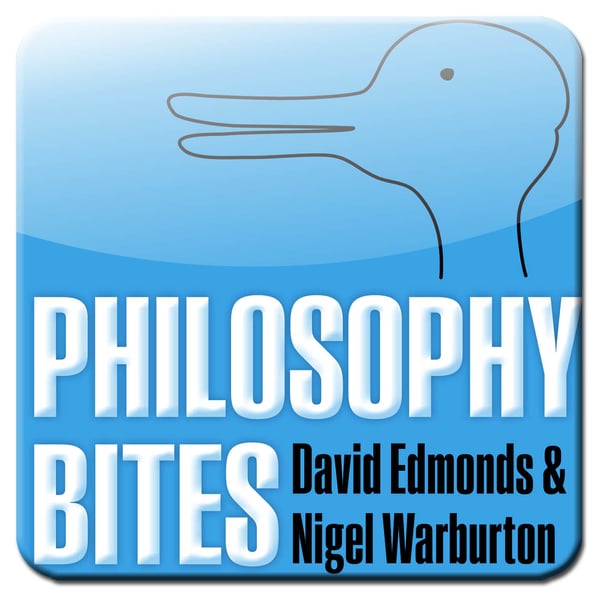Jonathan Birch on the Edge of Sentience
Philosophy Bites
Nigel Warburton
4.6 • 2K Ratings
🗓️ 21 October 2024
⏱️ 28 minutes
🧾️ Download transcript
Summary
Recent zoological research has shown us that a wide range of animals are likely to have sentience. We don't know for sure. There is sufficient evidence to think that it is likely that, for example, lobsters can feel pain. What should we do in the light of this? Jonathan Birch of the LSE, author of The Edge of Sentience, discusses this important question with Nigel Warburton.
Transcript
Click on a timestamp to play from that location
| 0:00.0 | This is philosophy bites with me David Edmonds and me Nigel Warburton. |
| 0:06.0 | Philosophy bites is available at www |
| 0:09.0 | philosophy bites.com. |
| 0:11.0 | Nobody doubts that dogs and cats feel pain. |
| 0:14.0 | But what about goldfish or squid or bees? |
| 0:18.0 | The question of which animals are sentient is of enormous importance, not least because it should surely influence how we treat them. |
| 0:27.0 | Jonathan Birch, a philosopher at the London School of Economics, has been leading a project investigating animal sentience and the ethical status of animals. |
| 0:37.0 | Jonathan Birch, welcome to Philosophy Bites. |
| 0:40.0 | I Nigel, thanks for inviting me. |
| 0:42.0 | The topic we're going to focus on is the edge of |
| 0:45.8 | Sentience just before we get to the edge. What is Sentience? It's good to start by thinking about pain and pleasure. Ask yourself questions like, |
| 0:57.0 | can an octopus feel pain? Can a crab? Can an insect? What about a spider? In fact I think it's good to have a concept that is a bit broader than just pain and pleasure. A concept that captures any experience that feels bad or feels good, any experience with a positive or negative quality. |
| 1:20.0 | That includes pain and pleasure, but it also includes things like joy, excitement, stress, boredom, comfort, discomfort. |
| 1:29.0 | And so when I'm talking about sentience, I'm talking about the capacity to have any positively or negatively valenced feeling. |
| 1:36.5 | So some people talk about consciousness. Why did you choose sentence rather than consciousness here? |
| 1:41.5 | I think they're both words that get used in a variety of ways. |
| 1:45.6 | I find sentience a little bit clearer because I think what it does is it draws our attention |
| 1:51.5 | to what is to me the most basic elemental evolutionarily |
| 1:56.8 | ancient base layer of human consciousness. Sometimes when we use the |
| 2:01.6 | word consciousness we're using it to refer to things that are laid over the top of that raw sensation and feeling, things like our ability to reflect on what we're experiencing and our ability to have an inner |
| 2:15.7 | monologue about our lives and how it's going and these are things that are on top |
| 2:20.9 | of that much more basic thing that is just feeling |
... |
Please login to see the full transcript.
Disclaimer: The podcast and artwork embedded on this page are from Nigel Warburton, and are the property of its owner and not affiliated with or endorsed by Tapesearch.
Generated transcripts are the property of Nigel Warburton and are distributed freely under the Fair Use doctrine. Transcripts generated by Tapesearch are not guaranteed to be accurate.
Copyright © Tapesearch 2025.

